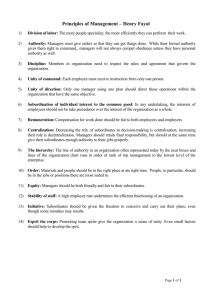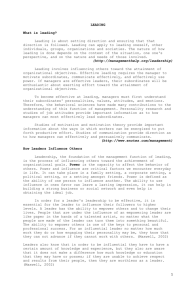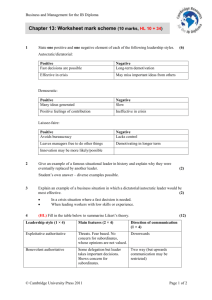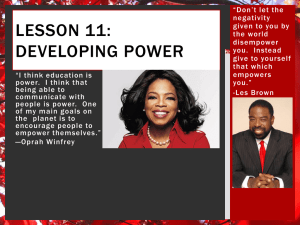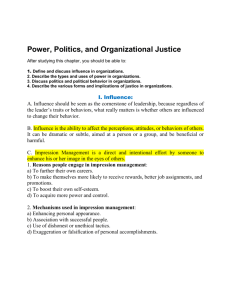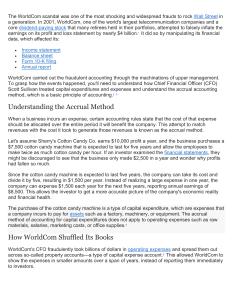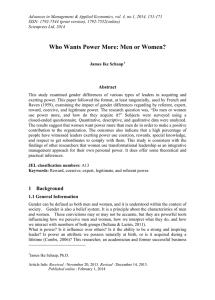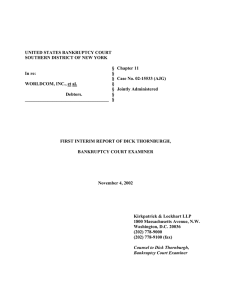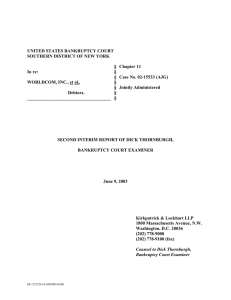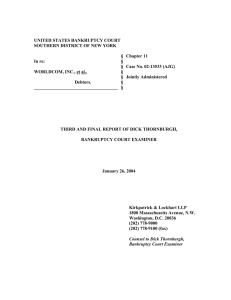Case Presentation
advertisement
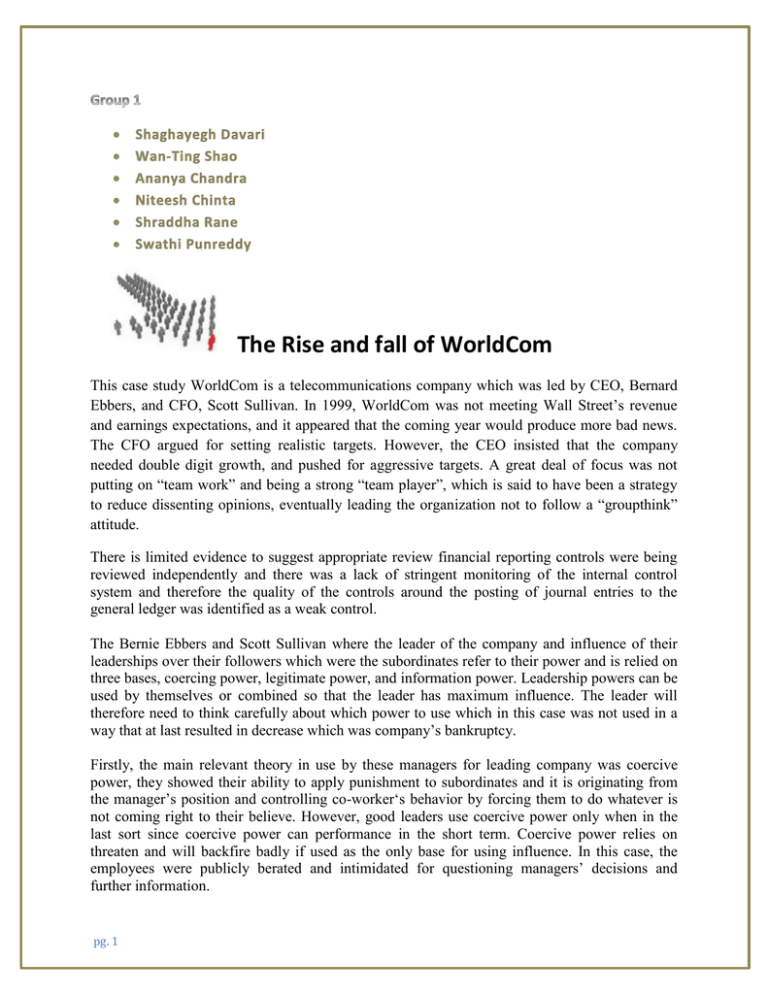
The Rise and fall of WorldCom This case study WorldCom is a telecommunications company which was led by CEO, Bernard Ebbers, and CFO, Scott Sullivan. In 1999, WorldCom was not meeting Wall Street’s revenue and earnings expectations, and it appeared that the coming year would produce more bad news. The CFO argued for setting realistic targets. However, the CEO insisted that the company needed double digit growth, and pushed for aggressive targets. A great deal of focus was not putting on “team work” and being a strong “team player”, which is said to have been a strategy to reduce dissenting opinions, eventually leading the organization not to follow a “groupthink” attitude. There is limited evidence to suggest appropriate review financial reporting controls were being reviewed independently and there was a lack of stringent monitoring of the internal control system and therefore the quality of the controls around the posting of journal entries to the general ledger was identified as a weak control. The Bernie Ebbers and Scott Sullivan where the leader of the company and influence of their leaderships over their followers which were the subordinates refer to their power and is relied on three bases, coercing power, legitimate power, and information power. Leadership powers can be used by themselves or combined so that the leader has maximum influence. The leader will therefore need to think carefully about which power to use which in this case was not used in a way that at last resulted in decrease which was company’s bankruptcy. Firstly, the main relevant theory in use by these managers for leading company was coercive power, they showed their ability to apply punishment to subordinates and it is originating from the manager’s position and controlling co-worker‘s behavior by forcing them to do whatever is not coming right to their believe. However, good leaders use coercive power only when in the last sort since coercive power can performance in the short term. Coercive power relies on threaten and will backfire badly if used as the only base for using influence. In this case, the employees were publicly berated and intimidated for questioning managers’ decisions and further information. pg. 1 Secondly, the legitimate power by the leaders is used to some extent in this case. It was written in co-worker’s minds that the leaders have right to instruct them and that they have an obligations to follow whatever instructions the leader are providing them and there is no need for whatever is not being provided to them. Legitimate power comes from the authority of the company’s position which can request certain behaviors of others. Ebbers indicated as personal charisma power which could be named as ”divine power” and made the board of directors think that he knows the way and the answers and could nurture or guide them; therefore, by producing passive board, rubber-stamped most of his recommendations. Finally, the managers in this case also relies on the information power. Information Management is an emerging field that is concerned with information; the infrastructure used to collect, store and deliver it; and the organizational and social contexts in which it exists. But these two managers did not deploy the information power as a competitive tool because there was no efficient and effective deployment of the resources of the company. However, while you can’t control anyone (except perhaps yourself), you can influence nearly everyone. This is the essence of true leadership. By this definition, Ebbers and Sullivan were great leaders in. One of the tactics influenced in this case involves actively applying legitimate and coercive power by even managers or subordinates usually form a group and tried to influence others by using threats of sanctions to force compliance, threaten, and apply punishment if the subordinates does not comply with the requests. Information control is simultaneously an influence for this case which is linked intimately with influence and power. The managers in this case hold lots of information without telling any of their employees and limited subordinates to have access to valuable information and make them stay in dark about work issue. Assertive might be called “vocal authority” which was another influence. Using the managers’ positions of power and so as to despise and control the employees will cause a lot of problem and damage of respect over the long term. However, the employees from the WorldCom quoted events that they were denounced for asking about any decisions or asking for information. In this case the managers did not use organizational politics in terms of behavior of interest groups to use power to influence decision making. They both focused on the self-serving and organizationally non sanctioned nature of individual behavior in organization. The most important tactic was developing strong allies and forming power coalitions, and associating with these two managers in their business. They consider threat available in organization settings, it seems quite reasonable to expect that people will find it advantageous to manage the impressions that others form of them, even in situation which subordinates feel that the outcome is failing. In this case almost all the executives and staff identified information as a political tool which is depending on the managers and it comes that the purpose of this tactic may be to burry or obscure an important details the political actors of the company which were these two managers believe that could harm them, when the risk of withholding information is too great. pg. 2
